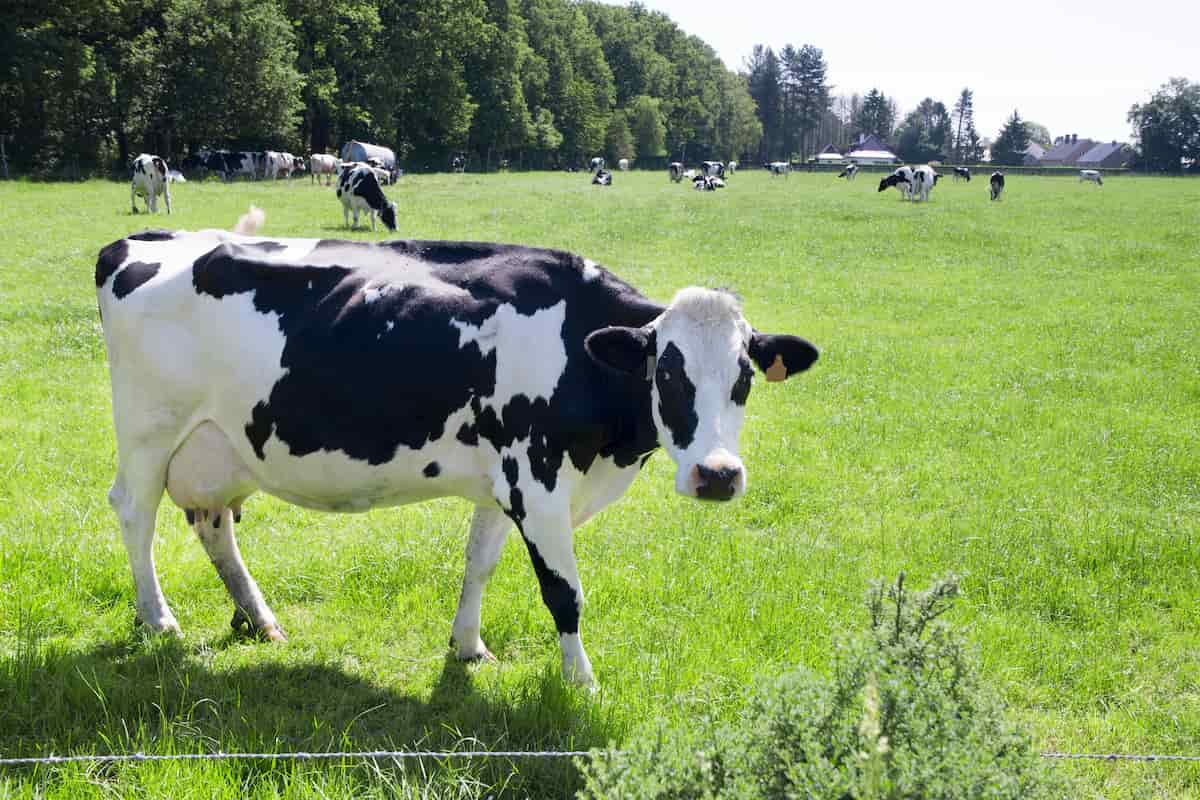Cow urine has been used as a natural fertilizer for centuries in various parts of the world. It is also an affordable and environmentally friendly option for those looking to reduce their use of synthetic fertilizers. This article will discuss using cow urine as a natural fertilizer for your garden plants. Below we learn how to use cow urine as a fertilizer and pesticide, how to make organic fertilizer with cow urine, cow urine benefits for plants, and cow urine NPK ratio.

Why Use Cow Urine as Fertilizer?
Cow urine contains nutrients such as nitrogen, phosphorus, potassium, and trace elements like copper, zinc, and iron, which are essential for plant growth. On average, cow urine has an NPK ratio of 0.5-0.5-0.3, which means it contains approximately 0.5% nitrogen, 0.5% phosphorus, and 0.3% potassium. It also has enzymes that help break down organic matter in the soil, making it easier for plants to absorb nutrients. In addition to these benefits, cow urine is an excellent natural insect repellent that can help keep pests away from your plants.
How to Collect Cow Urine?
The first step in using cow urine as fertilizer is to collect it. Directly collect the urine from cows grazing in a pasture. You can also purchase cow urine from local farmers or online suppliers if you cannot access cows. When collecting cow urine, it is essential to ensure it is fresh and has not been contaminated by other substances.
How to Store Cow Urine?
Cow urine is highly volatile and can quickly decompose, making storing it properly important. To store cow urine, you will need a large container made of plastic or metal with a lid. Ensure that the container is thoroughly cleaned and sanitized before using it to store urine. You should also store the container in a cool, dark place to prevent the urine from breaking down quickly.
How to Use Cow Urine as Natural Fertilizer
Dilute the Cow Urine
Cow urine is highly concentrated and can burn plants if not diluted. Mix one part of urine with ten parts of water to dilute the urine. You can water your plants with the diluted urine or spray it on with a spray bottle.
Apply Cow Urine to Plants
Foliar Spray: A foliar spray is when you apply fertilizer directly to the leaves of your plants. To use cow urine as a foliar spray, fill a spray bottle with the diluted urine and spray it on the leaves of your plants. Make sure to cover both the top and bottom of the leaves.
Soil Application: You can also apply cow urine directly to the soil around your plants. To do this, pour the diluted urine onto the soil around the base of your plants. Avoid getting urine on the leaves of the plants, as this can cause burning.
Apply Cow Urine Regularly
You should regularly apply cow urine to your plants to see the best results. It is best to apply it once every two weeks during the growing season. Be careful not to overapply the urine, harming your plants.
In case you missed it: Benefits of Pig Manure Fertilizer in Agriculture: Uses, When and How to Apply

Precautions to Take When Using Cow Urine as Fertilizer
- Wear gloves: Cow urine can harm your skin, so wearing gloves when handling it is important.
- Dilute the urine: As mentioned earlier, cow urine is highly concentrated and can burn your plants if not diluted. Always dilute the urine before using it as fertilizer.
- Do not apply to edible parts of plants: Cow urine is safe for plants, but you should avoid applying it to the edible parts of your plants, such as fruits and vegetables. This is because cow urine can contain harmful bacteria that cause foodborne illnesses.
- Do not apply to young plants: Young plants may be more sensitive to the nutrients in cow urine, so it is best to avoid using it on plants that are still developing.
- Avoid using on acid-loving plants: Cow urine is alkaline and can raise the soil’s pH level, making it unsuitable for acid-loving plants such as blueberries, azaleas, and rhododendrons.
Benefits of Using Cow Urine as a Fertilizer
- Rich in nutrients: Cow urine contains several nutrients such as nitrogen, phosphorus, potassium, and trace elements like copper, zinc, and iron, essential for plant growth. These nutrients help to promote healthy plant growth, improve soil fertility, and enhance the quality of fruits and vegetables grown in the soil.
- Acts as a natural insect repellent: Cow urine is also an excellent natural insect repellent. The strong odor of cow urine is unpleasant to many insects, and when applied to plants, it can deter them from feeding on the leaves and fruits.
- Promotes soil health: Cow urine enzymes break down soil organic particles, making nutrition easier for plants to ingest. This, in turn, promotes healthy soil, increases soil fertility, and improves the overall health of the plants.
- Improves crop yield: Using cow urine as a fertilizer can significantly improve crop yield. The nutrients in cow urine promote healthy plant growth and increase the yield of fruits and vegetables.
- Cost-effective: Cow urine is an affordable option compared to synthetic fertilizers. It can be easily collected from cows grazing in a pasture or purchased from local farmers or online suppliers. Because of this, it is an excellent choice for people who are trying to cut down on the costs associated with gardening.
In case you missed it: A Guide to Using Water-Soluble Fertilizers: Maximizing Your Garden’s Potential

Conclusion
Using cow urine as fertilizer is an excellent way to promote healthy plant growth and reduce your use of synthetic fertilizers. With proper use, cow urine can be a valuable addition to your gardening routine, promoting healthy plant growth and helping to protect the environment.
- Ultimate Guide to Ossabaw Island Hog: Breeding, Raising, Diet, and Care
- Ultimate Guide to Juliana Pig: Raising Facts, Size, Diet, Care, and Lifespan
- Raising Lleyn Sheep: Disadvantages, Price, Uses, Characteristics, and Care
- Ultimate Guide to Meishan Pig: Breed Facts, Breeding, Raising, and Care
- Ultimate Guide to Teacup Pigs: Raising, Diet, Lifespan, Cost, and Care
- Guide to Raising Poll Dorset Sheep: Facts, Profile, Characteristics, Uses, and Care
- Ultimate Guide to Bighorn Sheep: Characteristics, Diet, Lifespan, Breeding, and Lifecycle
- Ultimate Guide to Raising Katahdin Sheep: Farming Facts, Breed Profile, Uses, and Care
- Ultimate Guide to Raising Oreo Cows: Belted Galloways Farming Facts, Profile, Uses, and Care